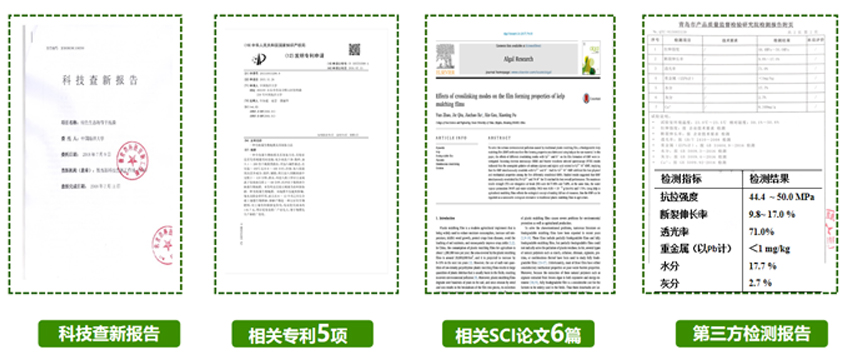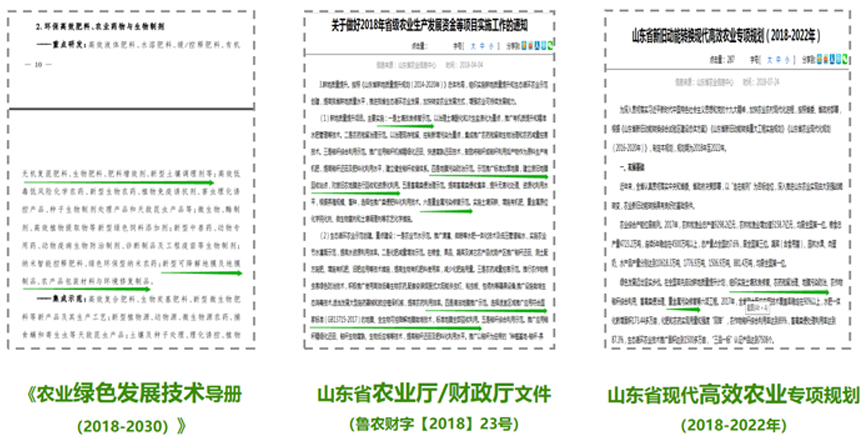- |
- |
- |
- |
- |
- |
- |
- All biodegradable seaweed dry film
- Edible biodegradable alginate film
- Enteric alginate hollow hard capsule
- Soilless cultivation and organic fertilizer for reducing pesticide residues
- Seaweed flexible toys, water balls, straws
Background significance of the project
"White pollution" is a worldwide problem. In 2017, China's agricultural film production was 2.6 million tons. According to statistics, 580 million mu of plastic film mulched land in China is suffering from serious damage of "white pollution", including 390 million mu of plastic film covering field and 190 million mu of fruit tree mulching. The content of plastic residual film in the most serious area is as high as 30-40kg / mu, which is equivalent to laying 10 layers of plastic film in each mu of soil, resulting in soil hardening and poor air permeability, leading to large-scale crops Reduction of production. So far, there is no 100% biodegradable, safe and effective substitute for plastic mulching film in the world.
In recent ten years, the outbreak of Enteromorpha prolifera has brought serious disasters to the coastal ecological environment. The salvage and processing of Enteromorpha prolifera have lost a lot of human, material and financial resources of the government, and have brought immeasurable losses to aquaculture and tourism. Under the background of frequent occurrence of Enteromorpha and "white pollution" of soil caused by plastic mulching film, Professor Xu Jiachao from the Research Office of seaweed chemistry and application, Ocean University of China, after nine years of scientific research, has prepared a fully biodegradable seaweed film from seaweed (Enteromorpha prolifera), which can effectively replace the traditional plastic film.
The total biodegradable seaweed (Enteromorpha prolifera) mulching film, with a domestic market value of about 100 billion, has a broad development prospect and a huge application market. In the next 10 years or more, the whole biodegradable biofilm industry will be the breakthrough point to solve the global "white pollution" problem.
Advantages of industrialization
1. Abundant raw materials.
The total output of algae culture in the world is 30.139 million tons (fresh weight), while that of China is 14.387 million tons (fresh weight), accounting for 47.9% of the total output. The total output of algae mariculture in China is 2.169 million tons / year (dry weight), including 1.461 million tons of kelp, 530000 tons of dry kelp and 200000-500000 tons of dry Enteromorpha in Shandong Province. Using seaweed (Enteromorpha prolifera) as raw materials, the biodegradable plastic film can not only solve the problem of "white pollution" of soil, but also solve the outbreak of Enteromorpha, and realize the comprehensive utilization of seaweed resources.
2. Leading technology in the world.
At present, it has 5 national patents and 6 international papers. Seaweed film has six advantages
① 100% biodegradation, 6-12 months degradation to organic seaweed fertilizer.
② The film can be mechanically laid with high strength and flexibility.
③ There is no need for recycling and zero pollution, and it can be turned over directly.
④ The comprehensive cost is low, 20-50 yuan / mu lower than plastic film.
⑤ It can inhibit the growth of weeds and reduce the use of pesticides.
⑥ Complex soil heavy metal, repair soil environment.
3. Huge market demand.
In 2017, China's state-owned plastic film mulching output value will reach 260.5 billion tons, and the plastic film mulching market will reach 260 million tons in 2017.
4. National policy support.


?2020 Shandong sea related Marine Biotechnology Co., Ltd
